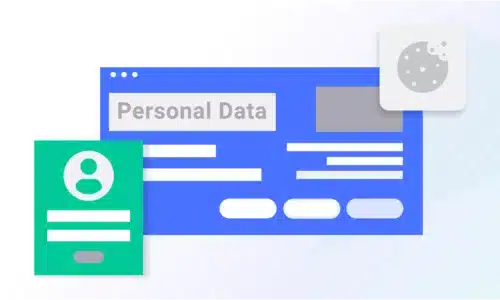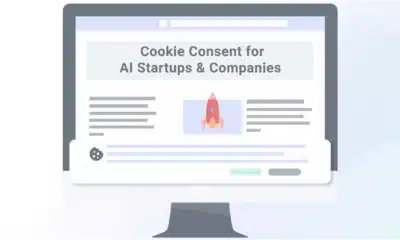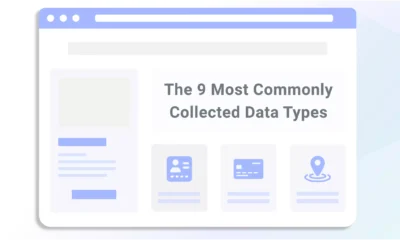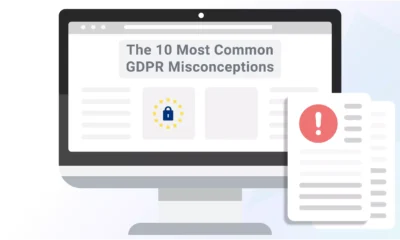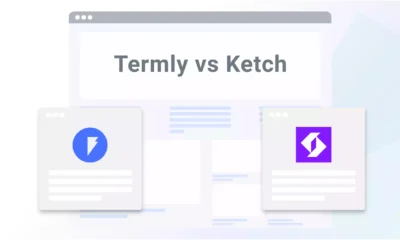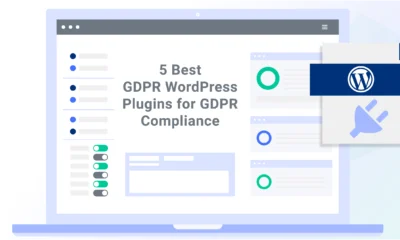Internet cookies can identify or single out individuals and are considered personal data under laws like the General Data Protection Regulation (GDPR), the ePrivacy Directive (also known as the EU Cookie Law), and the California Consumer Privacy Act (CCPA).
If your website falls under the jurisdiction of any privacy laws, you must apply the guidelines to use cookies, or else your business might pay the price.
Below, learn why cookies qualify as personal data under these laws and how compliance solutions like our Cookie Consent Manager can help you use cookies legally.
Cookies and Personal Data Explained
Cookies qualify as personal data as defined by data privacy laws like the:
- General Data Protection Regulation (GDPR)
- ePrivacy Directive (EU Cookie Law)
- California Consumer Privacy Act (CCPA)
- Colorado Privacy Act (CPA)
- Connecticut Personal Data Privacy Act (CTDPA)
- Virginia Consumer Data Privacy Act (VCDPA)
- Utah Consumer Privacy Act (UCPA)
If you fall under the jurisdiction of any privacy laws, you must follow their guidelines to use cookies legally.
For example, most of these laws give individuals the right to opt out of having their data sold or shared with third parties or used for targeted advertising, including data collected through internet cookies.
To help clarify this matter, let’s briefly define internet cookies and personal data.
What Are Cookies?
Most websites leave small text files capable of storing a wide range of information on users’ browsers called internet cookies.
When a user visits your website, it stores cookies on their browser, most of which contain a unique identifier or a cookie ID.
A cookie ID is a string of characters websites associate with the browser the cookie is stored on — when a user revisits your site, it recognizes their cookie ID from the previous visit and retrieves and auto-fills their preferences.
But cookie IDs contain information about your website users that meet the legal definition of personal data according to laws like the GDPR, the EU Cookie Law, the CCPA, and more.
What Is Personal Data?
While the legal definition varies slightly between different privacy laws, personal data is any information about a user that could directly or indirectly link back to an individual or household.
It includes details like:
- Names
- Location information
- Identification numbers
- IP addresses
- Home addresses
- Other sensitive information
Most cookies legally qualify as personal data because you can use cookie IDs to identify an individual through their devices.
Legal Classification of Cookies
If we’re being very technical, it’s the cookie ID that legally qualifies as personal information.
For example, the GDPR classifies what online identifiers it considers personal data in Recital 30, which states:
Natural persons may be associated with online identifiers provided by their devices, applications, tools and protocols, such as internet protocol addresses, cookie identifiers or other identifiers such as radio frequency identification tags. This may leave traces which, in particular when combined with unique identifiers and other information received by the servers, may be used to create profiles of the natural persons and identify them.
Sources online say that cookies are personal data under data privacy laws because of how we talk about cookies colloquially as a culture versus how specific the phrasing must be when written into law.
Because all non-essential cookies have a unique ID anyway, it makes sense to use the phrase most people are familiar with, which is just plain old ‘cookies’… Is anyone else getting hungry?
Examples of Cookies That Don’t Process Personal Data
While most types of internet cookies collect and process personal data, some cookies don’t.
Essential cookies help websites function properly without processing information — other cookies process anonymous data that can’t directly or indirectly identify an individual.
However, be cautious when categorizing cookies this way.
The GDPR, for example, defines personal data very broadly, and GDPR-compliant cookie anonymization is a high threshold.
Examples of Cookies That Do Process Personal Data
To simplify your data privacy compliance efforts, assume that any non-essential cookies your site uses fall under the legal definition of personal data.
Common cookies that track personal data include:
- Statistics cookies
- Marketing cookies
- Third-party or tracking cookies
- Secure cookies
- HTTP-only cookies
- Flash cookies
- Zombie cookies
To determine what cookies your website uses, scan your site below:
If your website uses cookies (and most do) it’s critical to understand how privacy laws classify and regulate them.
Instead of navigating this complex landscape alone, streamline your efforts with tools designed to help you manage cookies responsibly.
Termly’s Consent Management Platform and Cookie Policy Generator can guide you in creating transparent cookie practices tailored to your region’s privacy regulations.
Reviewed by Ali Talip Pınarbaşı, CIPP/E, & LLM Data Privacy Law Consultant


